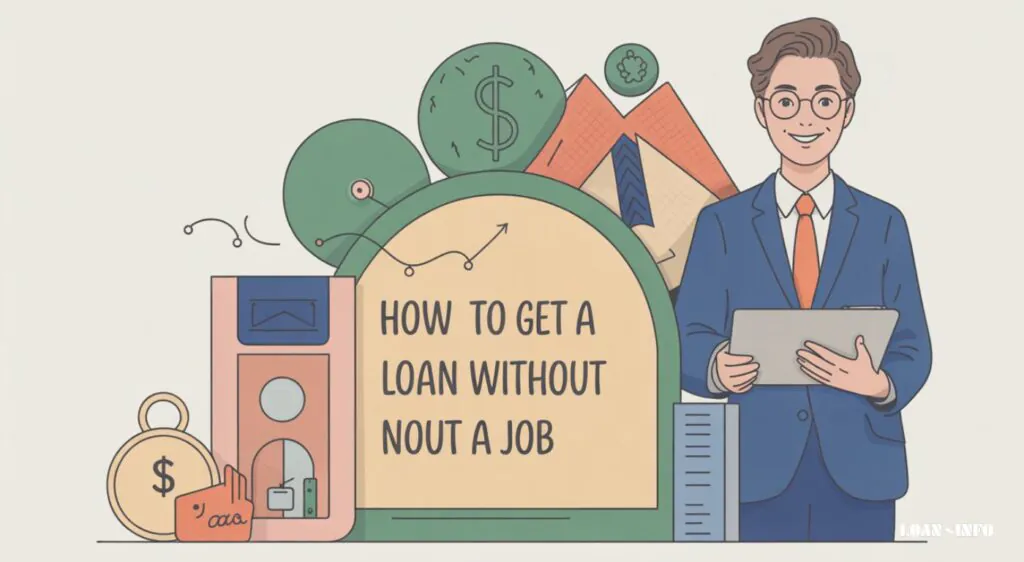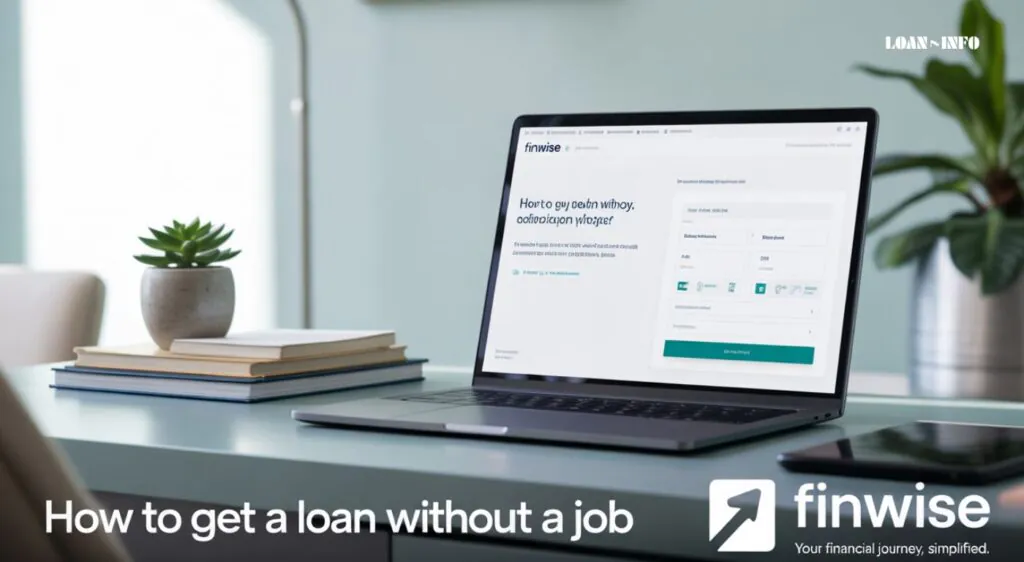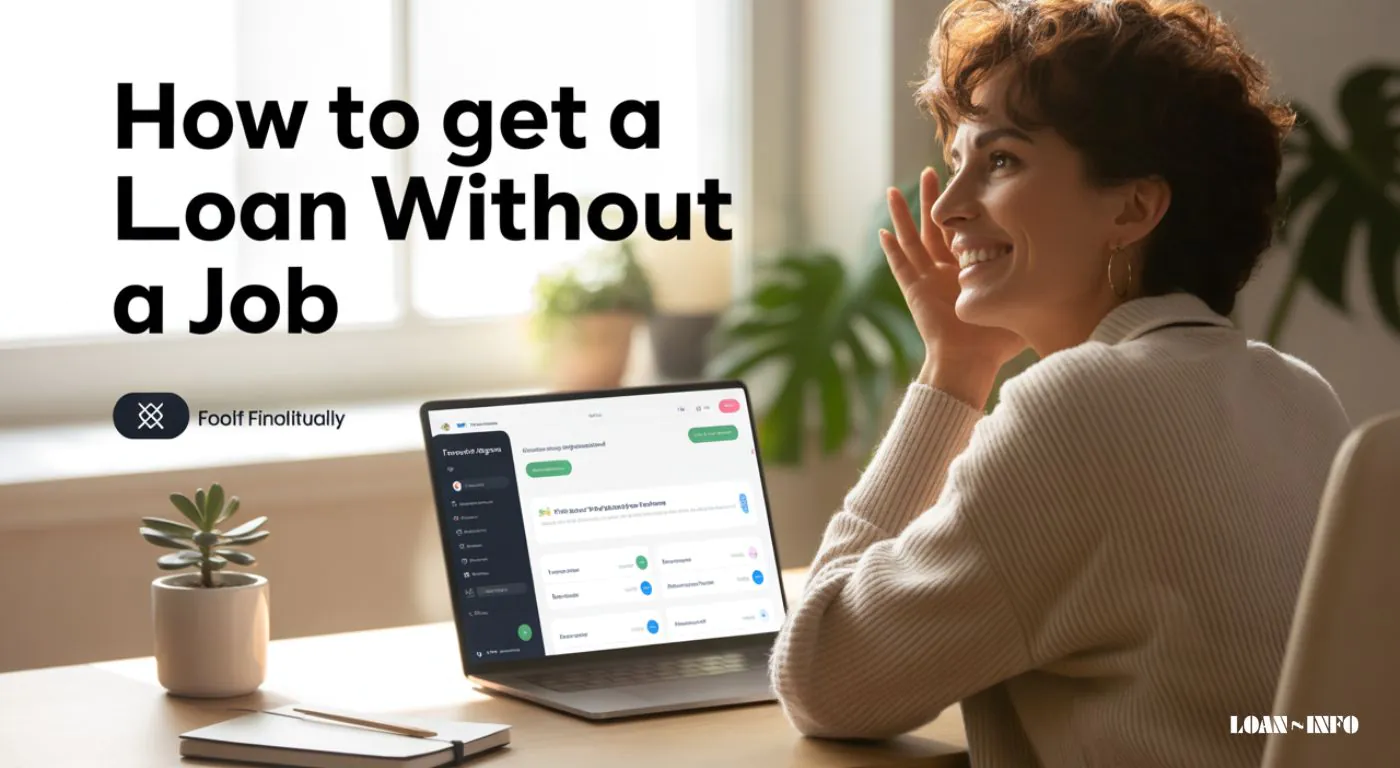Looking for ways on how to get a loan without a job can feel overwhelming, especially if you’re dealing with sudden bills or financial emergencies. Many lenders want to see proof of income / income verification, but that doesn’t always mean you’re out of options. You might still qualify using alternative sources of income such as Social Security income, disability benefits, or even support from family wealth.
In today’s lending market, options like no income verification loans and personal installment loans make it possible to borrow money without a traditional paycheck. This guide will help you understand the choices available, the risks, and the smartest steps forward.
What Does It Mean to Get a Loan Without a Job?

Getting a loan without a job doesn’t mean you have no money at all. It means you don’t have a traditional paycheck from an employer. Lenders want to see some kind of income flow, even if it comes from self-employment income proof (bank statements, tax returns), Social Security income, or disability benefits.
The real focus is on your ability to repay the debt. While banks may hesitate, alternative lenders, credit union loans vs. bank loans, and online platforms often look at alternative sources of income such as monthly stipends or trust assets / family wealth. These can sometimes make up for the lack of a paycheck.
Can You Really Get a Loan Without Employment?
People often wonder if it’s possible to borrow money without a paycheck. The answer is yes, but it depends on your situation. Traditional banks may be strict, while online lenders are more flexible.
Approval depends on meeting loan approval requirements like showing assets, using a co-signer, or applying for collateral-based loans. Even bad credit lending options exist, but they usually come with high-interest loan risks and shorter repayment periods.
Alternative Income Sources Lenders Accept
Lenders may accept many kinds of alternative sources of income when you apply for a loan. These include workers’ compensation income, court-ordered payments (child support, settlements), pensions, or even part-time work / gig economy earnings.
Here’s a quick table of acceptable income sources:
| Income Source | Accepted By Lenders? | Documentation Needed |
|---|---|---|
| Social Security income | Yes | Award letter, bank statements |
| Retirement income loans | Yes | IRA / 401(k) statements |
| Disability benefits | Yes | Disability award letter |
| Monthly stipends | Sometimes | Letter from institution |
| Trust assets / family wealth | Yes | Trust documentation |
Types of Loans You Can Get Without a Job

When exploring alternative financing options, several loan types exist. Personal installment loans are a common choice since some lenders only require a credit check. Peer-to-peer lending platforms allow regular people to lend you money, often with flexible terms.
You might also consider secured vs. unsecured loans. Collateral-based loans such as title loans, pawn shop loans, or a home equity loan / HELOC use your assets for security. However, unsecured loans, though riskier for lenders, may be available if you have strong credit.
Government Grants and Assistance Programs
Not all help comes from loans. Government programs (TANF, LIHEAP, unemployment benefits) provide support for housing, utilities, and basic needs. These aren’t loans, so repayment isn’t required.
Many states also run financial assistance programs that help you cover living costs during unemployment. Exploring these options can provide financial relief during unemployment without falling into debt.
High-Risk Loan Options to Avoid
Some loans may look easy but can trap you in debt. Payday loans, cash advance loans, and credit card cash advance products often carry extreme interest rates. In some cases, APRs can exceed 300%.
Similarly, pawn shop loans and title loans are risky because you can lose your valuables or even your car. These are examples of high-interest loan risks that should be avoided unless you have no other choice.
Credit Score Requirements for Loans Without Income
Lenders rely heavily on your credit score when there’s no paycheck to show. A good score makes it easier to qualify for no income verification loans, while poor scores limit your options.
Credit score impact affects loan size, interest rate, and terms. Some lenders offer bad credit loans, but they often come with strict repayment schedules and higher costs. Improving your score before applying can boost your approval chances.
How Much Can You Borrow Without a Job?
The amount you can borrow depends on loan approval requirements and your overall financial profile. Lenders assess your ability to repay using credit history, assets, and proof of income / income verification.
On average, unsecured personal installment loans may range between $1,000 and $10,000, while home equity loans or collateral-based loans may allow higher borrowing limits if you own valuable assets.
How to Improve Approval Chances When You’re Unemployed
You can boost your chances by presenting a strong application. Adding a co-signer, showing self-employment income proof (bank statements, tax returns), or pledging collateral can help.
Building credit, lowering debt, and explaining your repayment plan also improve trust. Some lenders may be flexible if you prove long-term stability through alternative sources of income or financial assistance programs.
Alternatives to Loans If You Have No Income
If borrowing feels too risky, consider other ways to access cash. Selling unused items, joining the gig economy for quick work, or turning to part-time work / gig economy jobs can provide income.
Crowdfunding, family support, or government financial assistance can also help. These choices reduce debt risk and give you breathing room until your finances improve.
Steps to Apply for a Loan Without a Job

The process starts with research. Compare lenders, especially credit union loans vs. bank loans, since credit unions often offer loan repayment flexibility.
Next, gather documents showing proof of income / income verification, identification, and any collateral details. Submit the application, review the terms carefully, and confirm you can meet the repayment schedule before signing.
Final Conclusion — Should You Get a Loan Without a Job?
So, can you get a loan without a job? Yes, but it comes with challenges. If you have alternative sources of income or assets, you can qualify for certain loans.
Still, weigh the risks. Emergency loan vs. traditional loan decisions matter because not all loans are safe. Explore government programs (TANF, LIHEAP, unemployment benefits) or temporary income streams before committing. Borrow only what you can repay to protect your future stability.
Frequently Asked Questions About How to Get a Loan Without a Job
Can you borrow money without a job?
Yes, you can borrow money without a job if you show alternative sources of income or provide collateral-based loans.
Is it possible to get a loan without income?
It’s possible through no income verification loans, but lenders still check your ability to repay before approval.
Can I get a loan if I am currently unemployed?
Yes, many lenders allow loans for the unemployed if you have benefits, savings, or part-time work.
Can I make a loan if I don’t work?
Yes, you can apply, but approval depends on loan approval requirements like credit and collateral.
What is a hardship loan?
A hardship loan is an emergency loan vs. traditional loan option that helps cover expenses during tough times.
Can I get money if I am unemployed?
Yes, through government programs (TANF, LIHEAP, unemployment benefits) or bad credit lending options designed for financial relief.
